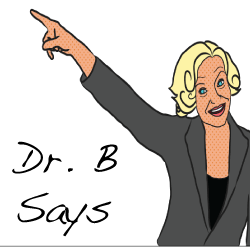Teacher Development
 |
As with any profession, teaching is not a static process; being a teacher means being dynamic, willing and able to change as one learns. The evolution of a teacher takes time as teachers develop a teaching persona and grow personally. A teacher should always be aware that they are developing and do whatever is possible to ensure it continues. In this section we will discuss the process of teacher evolution. |
What does teacher evolution entail?
Teachers' professional evolution happens in two ways. As teachers gain experience and try out different techniques they find what works best for them. Alternatively, teachers make conscious efforts to improve their teaching practice; this includes reaching out to learn techniques and strategies that might not occur to them on their own. Both streams of development are important in a teacher’s evolution if the teacher is to reach his full potential.
back to top
What phases do teachers go through?
As teachers gain experience in their teaching practice, they grow and develop in many different ways. This growth may be categorized into certain stages of development. Huberman (1993) describes these stages and ascribes approximate periods of time to these stages in The Lives of Teachers:
-
Career Entry (1-3 years): In this phase, teachers learn certain skills quickly, such as classroom management, feeling at ease with parents and how not to panic. This process comes about through trial and error; teachers must try out different methods to find the ones which are most natural to them. This phase is also significant since it covers the transition from student to teacher and what that role change means for the new teacher.
-
Stabilization Phase (4-6 years): In this phase, teachers become more comfortable in their role; their confidence and sense of independence also increases. This allows them to focus more on teaching practice and devote themselves to expanding their pedagogical strategies. This stabilization process is still dynamic however, and it is still natural for teachers to experience moments of insecurity and frustration. Skills that teachers learn in this phase include designing more interesting and stimulating lessons, feeling more at ease with their colleagues, and finding a happy medium on the time demands placed upon them.
-
Experimentation and Diversification (7-25 years): Having achieved a level of comfort through the previous two stages, teachers often become engaged in seeking out new challenges and stimulation. A sense of effectiveness has often been achieved, and teachers are able to apply a new level of creativity to their planning. Skills that are worked on in this phase include accepting criticism, motivating uninterested students and increasing the degree of differentiation in their classroom.
back to top
How can teachers promote their own development?
-
Plan professional development: Setting goals for one’s own development involves reflecting on one’s current status and where one would like to be. Without a goal, there is little motivation or no plan to move forward. For information on creating effective goals, click here.
-
Reflection: Be proud of your achievements, but be willing to improve. Reflection is an honest appraisal of your skills and deficits, and is an excellent starting point from which to create goals.
-
Observation: Take advantage of opportunities to see what other teachers are doing, even if they don’t teach in the same subject area; even minor adjustments in classroom techniques can make a big difference in the classroom.
back to top

Huberman, M. (Ed.). (1989). Research on teachers' professional lives. International Journal of Educational Research, 13(4), 343-466.


